The Best Bún chả In San Francisco, Is The City’s Best Kept Secret
All I will tell you was that somewhere in San Francisco, hidden behind a red door on a foggy street, there’s a tiny restaurant run by two incredible people who knew what it meant to feed your soul.
There are mornings in San Francisco when the fog hangs so thick, it curls above your head cascading water droplets everywhere like a misty rain. It’s so heavy sometimes that it makes you wonder if the sun will ever find its way out, or even have a chance to peak through. The marine layer swirled around lamp posts and crawled over the cracked sidewalks. It licked at the ankles of early risers and the odd insomniac wandering off a bender from bars that were open far too late, or far too early, depending on your perspective. This is a city that woke up slowly, as if it was hungover from its own mythology. On these types of mornings, when the city felt like a half-remembered dream, I found myself actually craving something hearty. Something real. Something that smelled of char, of herbs, of a thousand years of recipes.
I wandered down old alleys. I strolled across wide streets. I stepped over cracked curbs. I slid across hilly intersections. My shoes squelched on wet pavement, guided by the low hum of city life and a tip from a friend who swore me to secrecy. “Don’t tell anyone,” she said, “or you’ll ruin it for the rest of us.” And for once, I actually listened. Yes, the place did have a sign out front. Yes, it’s been there for quite some time. There’s a battered red door. There are old windows fogged over with condensation that revealed nothing but a tiny place inside with a few modest tables, and a sparse but obsessively clean dining area with an open kitchen behind it. Honestly, if you just happen to be walking by, if you didn’t know what you were looking for, or even if you were indeed looking for this spot, you’d walk right past it. And selfishly, smelling the aroma of the food prep that was wafting into the open street from the partially open front door, selfishly, I would say, maybe you should.
Inside, the restaurant was barely bigger than a walk-in closet. As most older San Francisco establishments tend to be limited on space, this place was no different. It had a few modest four top tables, several two top tables, and a bar area located just around the open kitchen in the back. The owners, husband and wife, welcomed me in with graceful generosity. The woman smiled first—her beaming grin was warm, genuine, and the kind of smile that made you feel instantly at home. Her husband offered me a short nod, eyes crinkling at the corners. They both came here from Hanoi many years ago, both immigrants who came to America as teenagers with nothing but a few family recipes and a dream. The American Dream, that battered old cliche that so many immigrants come here to capture. It was a wish, it was a vision, it was a goal made real by the scent of grilled pork and the sound of boiling broth, bubbling behind the counter.
I was the only customer. The lunch rush was still an hour away at the very least, and the city outside was still half-asleep. The woman showed me to a seat near the counter and instantly brought me a cup of green tea that was fragrant and grassy. I inhaled the vapors coming off of the cup, clearing my early morning congestion. I sat in silence, listening to the sizzle from the tiny kitchen as her husband was already working to put together my breakfast. I didn’t ask for a menu. There wasn’t one. They invited me to experience their bún chả, and I was not about to argue with the chef. Bún chả is one of those dishes that, if you’ve never had it, once tasted, you’ll spend the rest of your life wondering how you ever lived without it. It’s quite simply Hanoi on a plate. Smoky grilled pork, slippery rice noodles, a riot of fresh herbs, all anchored by a bowl of sweet-sour fish sauce that will make you yearn for your lost innocence so that you could experience this amazing bowl for the first time, every time you order it. It’s the kind of food that tasted like summer afternoons and family gatherings, like laughter that echoed through a courtyard as motorbikes roar by you through the alleys, as you crouched on some street food vendors stool, slurping like a human vacuum.
But I was not in Vietnam. Far from it in-fact. I was in San Francisco. I was here, in this tiny, fog-wrapped eatery, that was something more than it appeared to be. This tiny little restaurant was a love letter to a country left behind and a new life built on grit, sweat, and the relentless hope that if you cooked good food, people would come. The wife delivered the plate and set it on the counter in front of me. I swear, if angels ever cried, their tears would taste like this. The pork was charred at the edges, smoky and sweet, marinated overnight in fish sauce, garlic, and sugar. It was then expertly grilled over a fire so hot it threatened to burn the place down. The noodles were soft and yielding, a perfect compliment to the meat. There’s a small mountain of herbs—mint, cilantro, perilla—so fresh they might have been plucked from a Saigon garden that morning. And then there’s the dipping sauce. It’s a bowl of nước chấm, a blend of fish sauce, vinegar, sugar, lime, and chili. It’s bright, pungent, it’s alive with flavor. It tasted like waking up suddenly.
I sat in silence and was left to my own obsessions as the couple went back to work preparing for the impending lunch crowd. My actions were automatic, as if I was in a dream sequence, my hands were not my own, as if I was operating on autopilot. Dip a slice of pork into the sauce, pile it onto the noodles, add a handful of herbs, lift it to my mouth. Chew. Savor. Swallow. Repeat. The flavors exploded—sweet, sour, salty, smoky, bitter, herbaceous. It was a fucking symphony, but not the polite sort you would hear in a concert hall. This was heavy metal street music, discordant and thrilling, played by people who knew how to wring every ounce of pleasure from life’s random experiences.
I ate in silence, the couple was bustling behind the counter, as they occasionally looked up to watch me sitting, slurping, and having my personal moment of gastronomical debauchery. They just smiled, looking up now and then in reaction to the random noises of complete enjoyment that I was making. And with every look they gave me, I just sat there and smiled, with a mouth full of meat and noodles, grinning and shaking my head slightly side to side like a mentally deranged idiot. This was, without a doubt, the best bún chả I’ve ever had. However, my simple declaration doesn’t really do it any justice. This was probably also the best breakfast I’ve had in years. And maybe, just maybe, ever. This generous steaming bowl in my hands was living proof that the universe sometimes got things right. In a city of overpriced $20 avocado toast and $9 lattes, you could still find a meal that costs less than your dignity and deeply feeds your soul, not just your stomach.
The woman smiled and brought me another cup of tea. Her English was careful, slow, practiced. “You like?” she asked, hope and worry mingling in her voice. With every fiber of my being, I could tell that every dish they made here they made with deep and humble pride. “Like isn’t the word,” I responded. “This was incredible. This felt like home.” She beamed. The husband grinned. There was silence in the dining room, but the entire tiny restaurant was filled with pride. As I slurped, and finished every last final drop, they told me their story in fragments—how they met in school in Hanoi, how they came to America, how they saved for years to open this place. They described the long hours, the challenges they faced, the joy of watching people discover their food. They talk about their children, who were arguably now more American than Vietnamese. This seemed to be the only point of contention between the couple as they exchanged a few words in Vietnamese following the wife’s declaration. But agreed with happiness that their kids still came home for bún chả on Sundays, and didn’t live “too” far away.
I thanked them, profusely. There was almost an awkward pause that followed. I honestly want to hug them both. I think that the wife realize this and immediately reached out to me, spreading her arms wide, and embracing me with a giant bear hug as we all broke into laughter. Just like my friend, they asked me not to share the name of their restaurant and not to tell anyone where it was. “We are very happy like this,” the woman said. “Too many people, too busy. We want to cook for people who love our food, not for people who want to take pictures for Instagram.” I nodded. I totally got it. Experiences like this were better left unsaid, better left unspoiled by the hungry hordes of foodies and influencers and bored tech bros looking for the next big thing to share on social media, that graced their lunch hour. Some things were just sacred and were secrets worth keeping.
So dear readers, I won’t tell you where this place is. I won’t give you the owner’s names. I won’t tell you what street their restaurant is on. I won’t even tell you what neighborhood it’s in. All I will tell you was that somewhere in San Francisco, hidden behind a red door on a foggy street, there’s a tiny restaurant run by two incredible people who knew what it meant to feed your body, your soul, and your heart. For now, I was full. But, I’ll be back again and again, as long as they’re here, cooking with love. Creating alchemy on their stove. And if you’re lucky, maybe one day you’ll stumble upon their tiny little restaurant yourself. And when you do, please tell them I said hello. And maybe give them a little wink. But please don’t tell anyone else. Some secrets are just too good to share and taste better when you keep them.

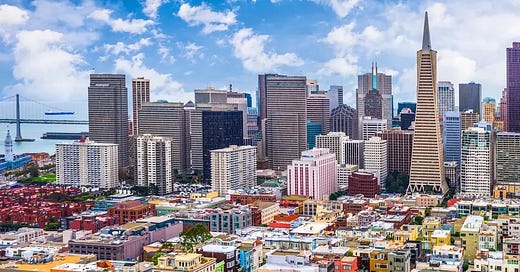



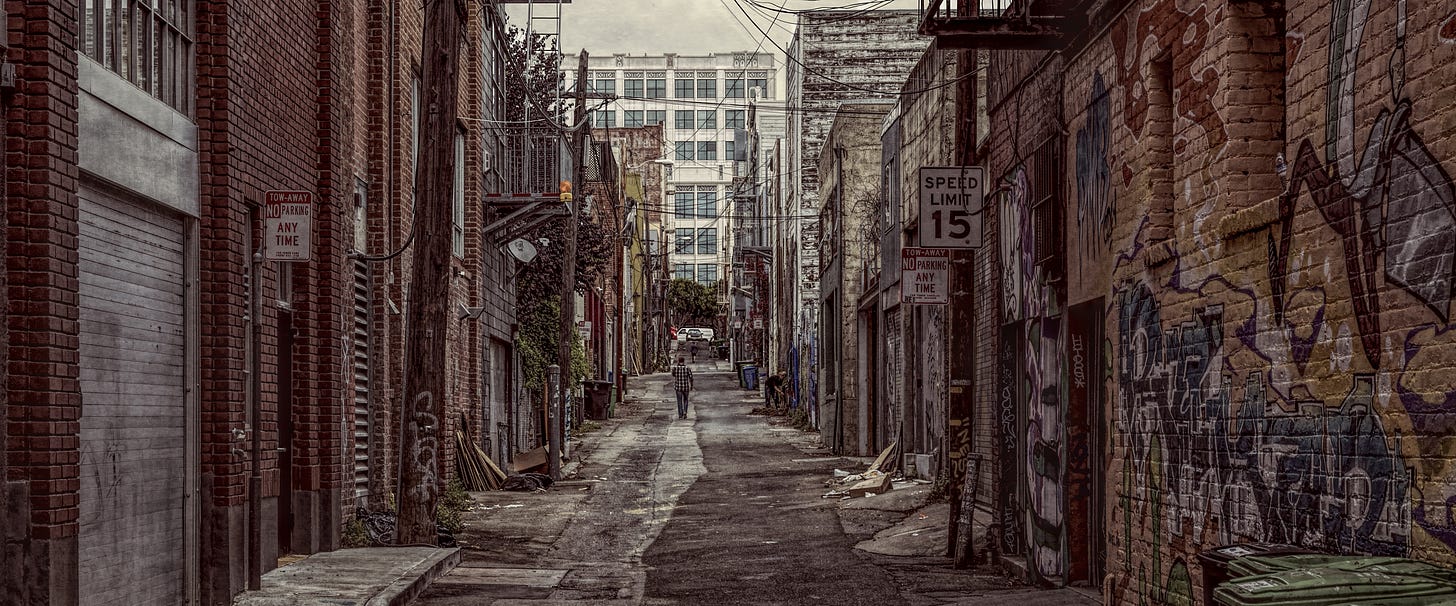
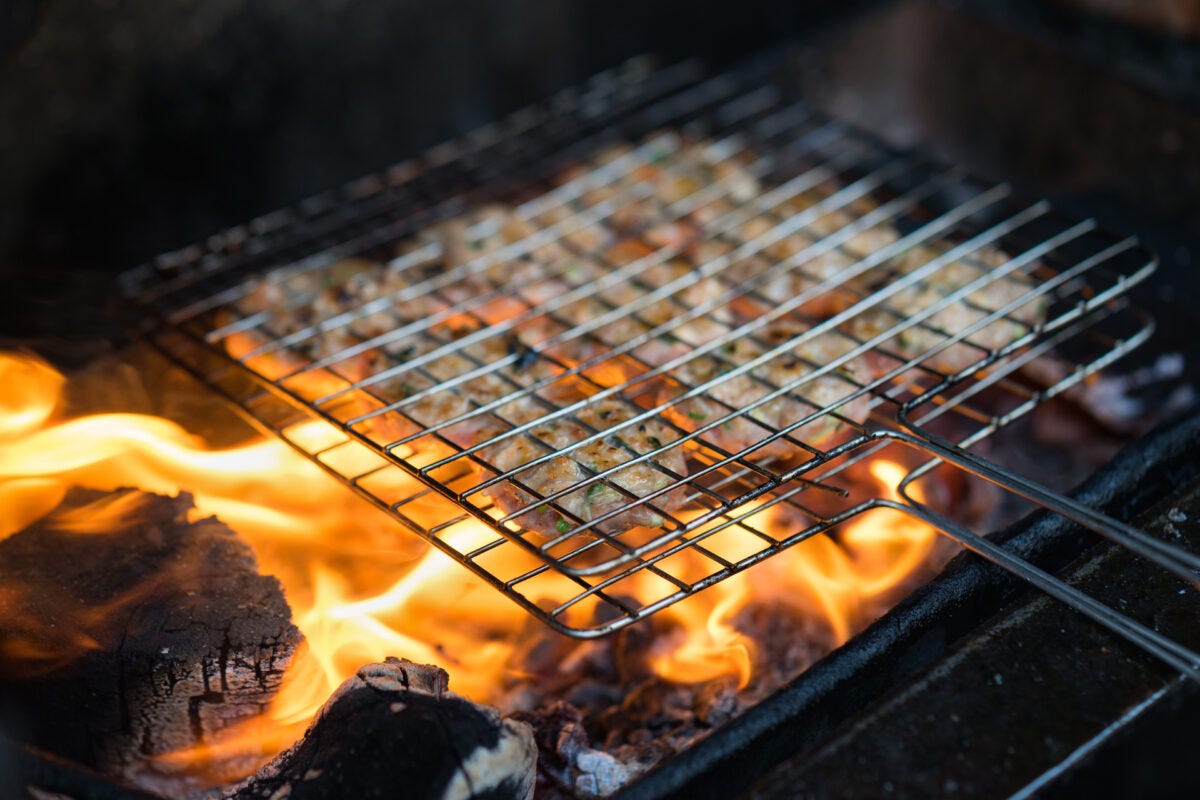
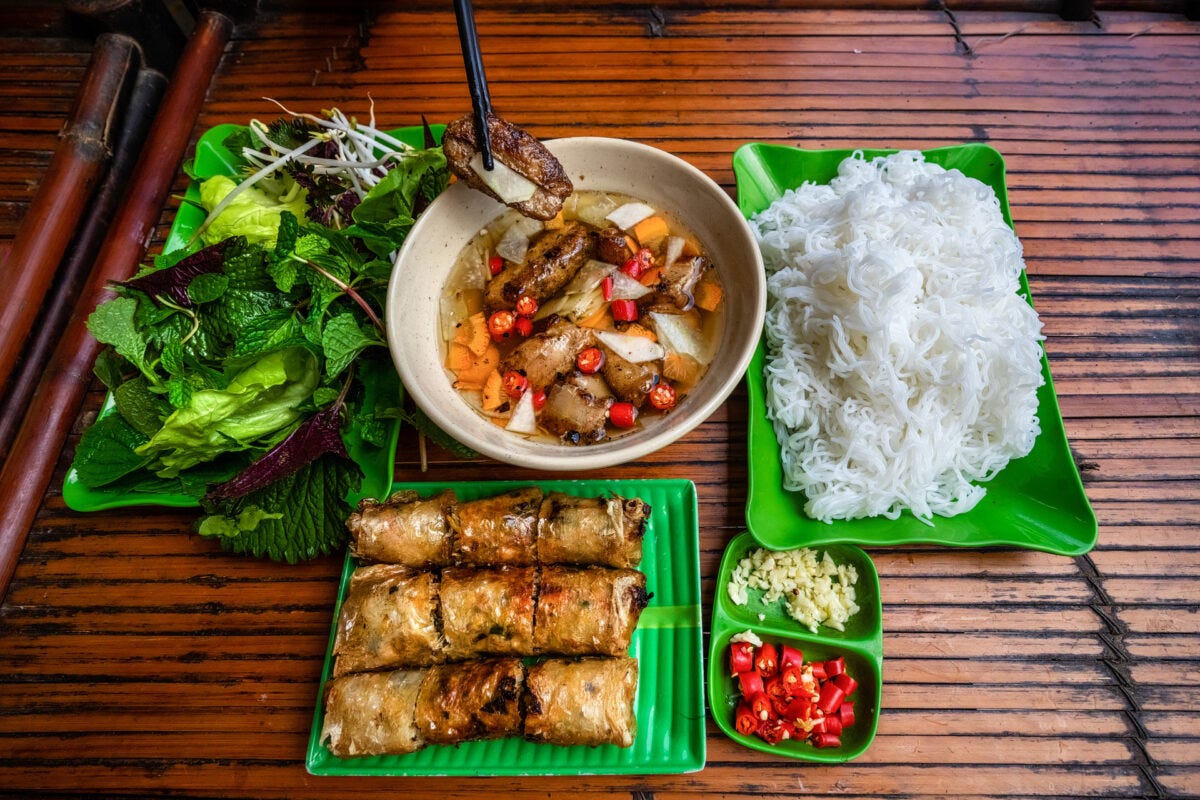
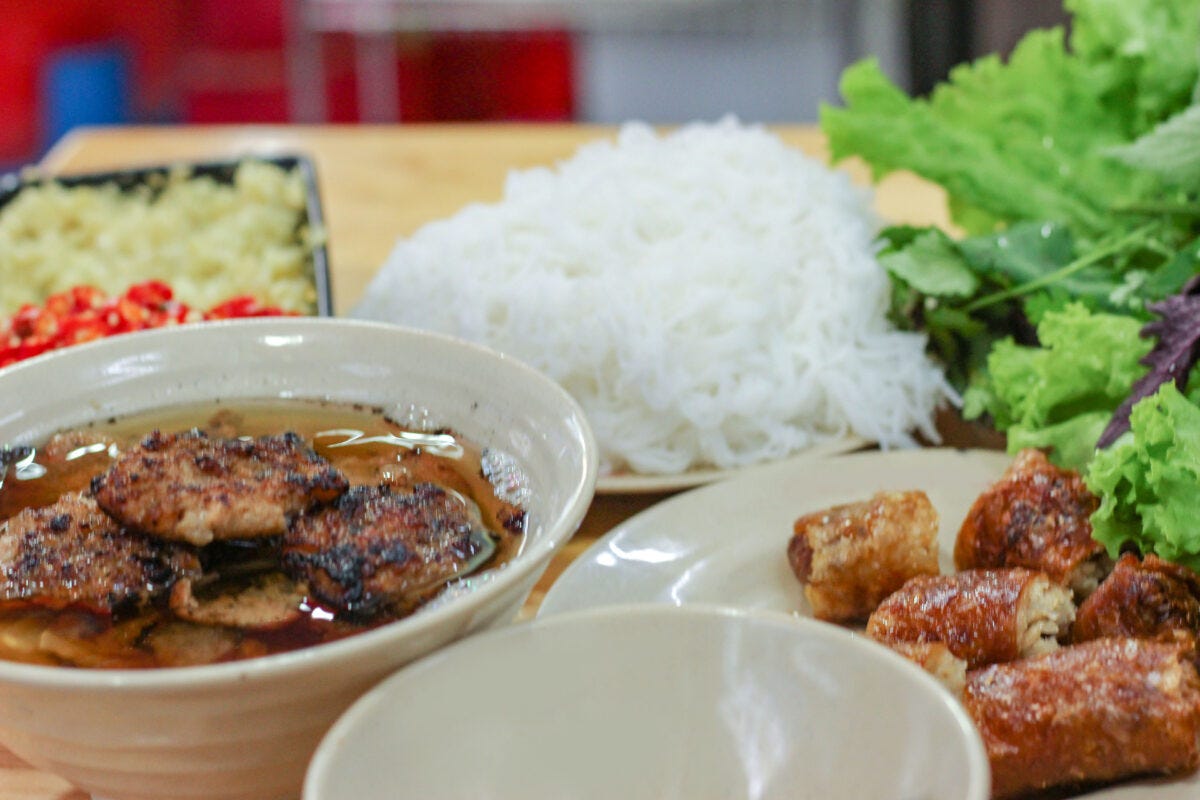
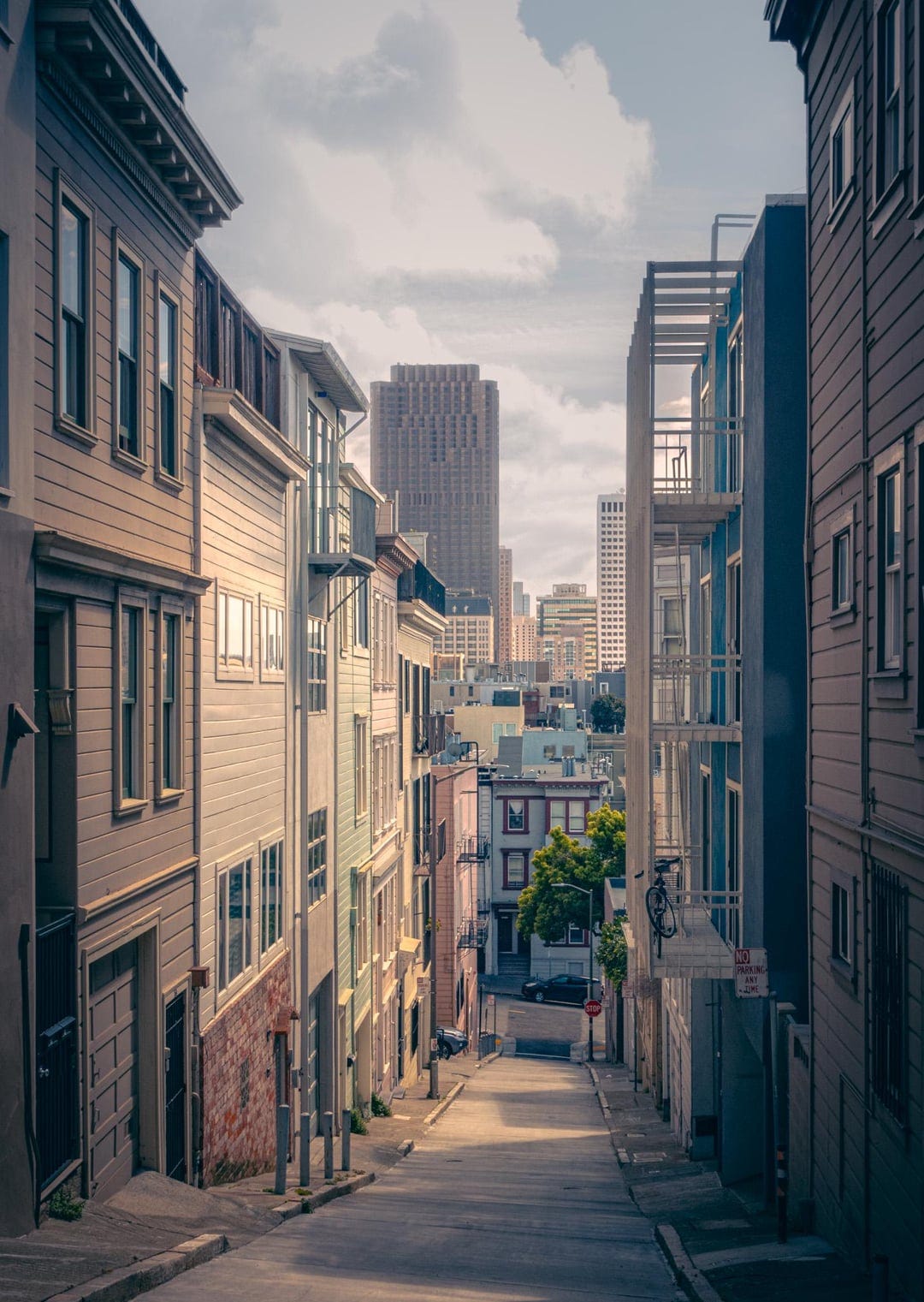
This is so lovely (aside from being absorbed in the story, your technical prowess with sensory storytelling never fails to amaze me), thank you for sharing--while hiding the restaurant, of course! I now have the urge to spend a month in San Francisco, wandering the streets and trying every red door I see...